A conversation between Johanna and Michaela.
M: Hello Johanna ! Ahhhh…you made it !!
J: Yes!!! Oh gollly gosh! So we’ll be a bit late starting….
M: Never mind. Just get yourself comfortable.Let me know when you are ready to start.
J:Yes, Michaela, sorry I’m a bit dumb with this hi-tech stuff!
M: Nothing to worry. How are you on this fine Sunday ?
J: I’ll be fine directly. Did you receive my picture of the gum trees?
M: Oh yes, I am looking at it. Beautiful gum trees. We do not have them in Europe…they look phenomenal. Did you take the photo ?
J: Yes, I took i today so that you can see what I see as I look out of my window! This living in nature has its little drawbacks – Mark (my husband) found a red-bellied black snake caught in a net. So he rang Wires (they come and rescue wildlife)), and then we had to wait for their return call. They should be here any minute.
M: Yes, it looks a lot like an awful lot of nature out there….are you out often ? Walking or gardening ?
J: We try to do some walking each day, don’t always manage. The walking is best if we go for a 10km drive first. Gardening is Mark’s domain – I just enjoy the result! By the way, Michaela, it’s funny, I was thinking, I’d like to ask you what you eat – puzzling whether that was appropriate. Then I came across your recipe poem. It reminded me of when I was a very young wife, and used to go to the markets, where there is this magnificent display of Italian type foods – capsicums of various colours, aubergines, etc – a bit different from the old cabbage, cauliflower and corn… I loved to see the richness of it, and looked forward to learning to to cook these exotic vegetables…. Now I do, of course. In fact I made your dish, minus the fresh tomatoes (I ran out), but with a mixture. It was good, even if it would have been better with fresh tomatoes! Sorry to babble on, but these colourful veggies are such a joy, arn’t they?
M: Ahhh…food. Love to talk about this. So let’s see…what do I eat. Very little nowadays. I somehow have lost all my appetite and it’s usually tea and sandwiches. Not very imaginative. But I remember when that poem came to me – I cooked Ratatouille. A friend was coming for dinner and this is what he wanted to eat. In summer we get inundated with tomatoes, capsicum aubergines etc. They are all beautiful and colourful and I love to see them, touch them, taste them. I a very partial to fruit and vegetables. I love them – even tough I don’t really eat much of it. It’s funny – I am a lifelong cook…always did it, from when I was a child. I have an obsession with food and it has been a channel for creative expression for a long time. However, I kind of lost the interest in it…this is a big surprise for me.
Are you a cook ?
J: Yes, I cook everyday – I think my husband would divorce me if I didn’t! Well, may not, but it’s an important aspect of our relationship! What shall we eat today? What can I do with this? – like that.
M: I have been contemplating about this change, you know. This sudden loss of interest in something I did all the time. It was also very much related to my social life. There simply was always something to eat at my place and I just loved the shopping for food, bringing it home, arranging it in the fridge and then just start cooking. Something was always simmering on the stove and of course – everyone loved it and I fed them. Nowadays…poof, gone out of the window ( like a few more of my habits) – but this one really was astonishing and most people think I must have gone seriously mad or something, because there is no more…food. 😉 Anyway, I am just getting carried away now…
J: Yes, I think I used cooking as a way of expressing my affection and appreciation of Mark, when I was young and not physically passionate… Now that we’re old, I have both!
M: Yes, I think there is something very physically passionate about food…you are right.
J: That was quite a lot about food – but it’s interesting to hear how that is for you. Of course, when I look at the hours you’re awake, I’m not surprised the energy around cooking is less! I hope you will really care well for yourself, Michaela!
Now, would you mind if I talk about something else, too?
M: Of course, anything you like…what would you like to talk about, Johanna ?
J: OK – Michaela, to talk in the old way, I’d say I’m a boundary crosser by tradition (my tradition, I mean!) So I came to Australia from Holland at the age of 11 – new language, different culture (not as bad as for the refugees from the Middle East though!) I Somehow I had got the impression there would be lots of Aboriginal people here, and I would be a white girl walking around in a city of black people….But when I got here, there wasn’t a single black person to be seen! So I became curious – which led, later, to my taking up anthropology. I had meet Mark at psychology classes at university, I studied Psychology and took at my pass degree, and then started to study Anthropology. Michaela, have you come across the work of Pr. Wilhelm Schmidt?
M: No, that name does not sound familiar ?
J: Well, he wrote a 12 volume work “Der Ursprung der Gottesidee” (The Origin of the Idea of God). The first volume is devoted to Australian Aboriginal culture, esp. mythology and ritual. At the turn of the 20th century there was a great momentum of research and discussion in this area. (Oh, meant to say, he’s from Vienna, too, I think!) While he set out to prove that belief in a high god is primary, the part of his work that really interests and intrigues me is the brilliant psychoanalytic interpretation of the art, myths and ritual… surprising for a priest!
Maybe I should go on? Well, you know Freud’s Totem and Taboo?
M: Yes, I am familiar with that one.
J: Well, I could go on & on… I have to be selective, but I suspect Freud was influenced by Schmidt, Roheim etc. Now, I ended up doing a big research project in this area – library research, ie. based on published materials. And sure enough, there is the father, Eagle, the son, Crow, and the mother, Emu. Emu is represented in the sky – the black shape in the Coalsack (southern hemisphere). So I studied a great many stories, and came to the conclusion that the Oedipus complex is clearly represented here (and Schmidt has shown this already!) Now, it is not only human beings who have problems with this – various species of animals also – they expel the mature young from the herd… In Aboriginal society, the institution of the ritual initiation, together with stories and art, – or this is what I concluded – have fulfilled the function of organizing society to deal with the force of the primitive tendencies in the young to appropriate the mothers an from the fathers, as it were. Society is organized into two halves, called “moieties”, so that each person from one must marry into the other. The system is more complicated, but it works in such a way as to avoid incest… Incest myths are the foundation, it seems, of all societies. I’d better stop there for a minute – how is this for you, Michaela?
M: Fascinating. I just looked up Prof. Wilhelm Schmidt and found out he indeed was obviously extremely influential with regards to the very rich socio-cultura development in central Europe at the time. Please…go on.
J: Yep. So what’s next ? I don’t want to neglect Jung, for I think there is much in Aboriginal myth that is better illuminated by him. As I said, I prefer to cross boundaries… People tend to go for either Freud or Jung. I think both, though not easy to combine their insights, as their approach is so very different.
The way I sum this up for myself is: Freud, without Jung, is sterile, Jung, without Freud, is ungrounded. We need both, but I don’t think we know how to combine the two into a coherent view! Sorry, this seems a long way from ET, hope that’s OK. The reason I wanted to write about this is that it seems to me the myths uncover something of the architecture of the human soul (a better word?)…and of the nature of human society. It is this dimension I am missing in the world view of Eckhart.
M: Yes, I think I understand what you mean. It is there, in Eckhart’s teachings – but only on a very general and high altitude level. I think we have 2 subjects here – one is how collective “knowledge” does evolve and the other theme is the use of myths and stories to transport ideas by symbols, as opposed to words or concepts, that may be closely linked to trends and a certain understanding, or preference at a time.
Evolution of “knowledge” – I have to think about a recent discovery I made listening to music. There – for the first time ever – I could hear how Haydn taught Mozart and how Mozart taught Beethoven – not only in terms of the technical skills of composition – volumes have been written about this – but on how to go deeper, how to touch the heart and then the soul. I think something very similar happened in psychology too. You just gave me a missing link with Wilhelm Schmidt – a linguist, a priest, an anthropologist, an ethologist, that is perfect for a foundation rooted in myth.
The other subject, which I think is closely related now, is indeed the use of myth as a foundation of social order and teaching. So it is very much about…teaching and building on those ideas. Not only intellectually, but through the heart and navigated by a stir in the soul.
This is the living application of – all is One ? Would you not think so …or am I completely off ?
J: Yes, your thoughts have helped join up two areas of my thoughts and feelings that seemed hard to reconcile… Oh, I love Haydn! When on any given day, the music didn’t flow, he would get down on his knees and find out what was wrong – thus restoring the balance.
I’m glad you found Wilhelm Schmidt of interest, he certainly helps to bring things together, doesn’t he? Though I still find myself a little puzzled about his straight-out psychoanalytic interpretations coexisting with his view of an original knowledge, as it were, of God. Plenty left to think about… But thank you for sharing these thoughts with me, Michaela… I sense that this conversation is drawing to a close…
M: Yes, maybe it is enough for a start. There are many subjects and themes and I would love to go deeper with you, Johanna. Perhaps we take some time and then reconvene and start illuminating a particular topic ? I would love that…in particular linking it back to ET’s teachings – as this might not be so obvious at first, but once you connect the loose ends, it is always pointing back.
This has been lovely. Thank you so much !!
J: Yes, that’s fine, Michaela. I’m really happy to have had the opportunity to talk about this with you. And indeed, perhaps we will be able to take it further one day. If you have any ideas popping up, I’m happy to be contacted. Best of all would be if you were coming to Sydney some time – you could stay here with us for a while and enjoy the bush and see the various spectacular parrots that visit us!
M: Oh, that would lovely…and who knows, maybe some time. I have never been to Australia, can you imagine….but definitely. let us stay in touch and play a little with the various themes…it is so great that you know about myths because there really is a richness to discover. Anyway…THANK YOU so much for spending your time with me and – have a lovely evening. Until soon my dear Johanna !!°
J: Thank you, Michaela – it feels like now we are friends. Thanks and all good wishes to you. And please remember to enjoy your beautiful food!
M: Good bye my friend – going to have breakfast now. 🙂
J: goodbye Michaela, till we meet again, fellow explorer!


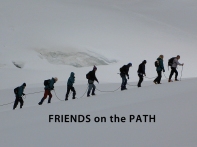



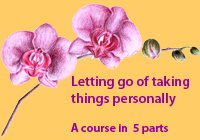

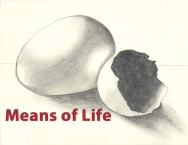

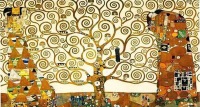

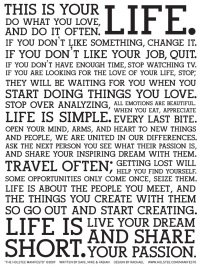
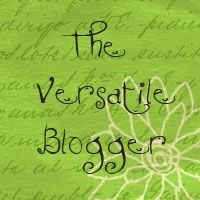


I don’t know quite what to say here. Is no-one interested in the topics here? Not “spiritual” enoough? I love food and its preparation, while Michaela, you are so very focussed on matters of the spirit… I was quite surprised that you showed such an interest in mythology. I love Eckhart’s teachings, I feel at home with what he says, but I find it sooo difficult to talk about the inner processes. I’d say that ET has made a difference to me, to my orientation, and I try to put his invaluable teachings into practice, failing more than succeeding, yet they provide a guide and something to work on.
Now an opportunity has come, to look again at something that was of the greatest interest to me, for many years – these anxient myths. What were people thinking about, what were they saying, through them, many thousands of years ago? Even now, myth still has that feeling for me of being the archeological evidence, as it were, of our emerging nature. I would like to explore this further.
Mythology is fascinating and I dive into it playfully. I discover it, in particular in music. Mythology and spirituality are twins. The power of symbols to represent what words cannot.
It is exactly what you say Johanna – you cannot talk – nor should one talk – about the inner processes. It is like telling your graces and I feel this is a sacrilege. But myths allow you to do that. They are like siblings of different personality – the ancient myths, legends, fairy tales…
I am currently discovering Wagner and the the richness of the symbolism he used at the Ring. A philosopher, a writer and a deeply spiritual person closely connected to nature.
I would love to explore this topic further.
Thank you, Michaela. Interesting, what you say about Wagner. I have not come near to his latermusic – perhaps it’s a little bit scary to me? We (my husband and I) did, though, go to a performance of the Meistersingers, which we both enjoyed. Oh, yes, about Haydn, Mozart and Beethoven – certainly, each of them passed on his learning to the next – but also, do you think there is a sort of spirit of the times? A pool of knowledge and experience? Some of Mozart’s contemporaries (e.g. Hummel) sound a lot like him… And so you get a culture…Like music, myths too pass from one person or group to another, stories are repeated and modified, the different versions co-exist. Layered, and forming a beautiful carpet.
I am working on the topic.
Love,
Johanna
Hi Johanna,
Yes, I really think it is all related. Learnings were passed on from generation to generation and you can see how it is related. It is like the spirit is finding a way to reach people – by music, performing art an the like. And of course the myths that are transferred from generation to generation. Wagner used a lot of myth – as did Richard Strauss. Bot composers were highly evolved spiritually.
This is just such an exciting topic….